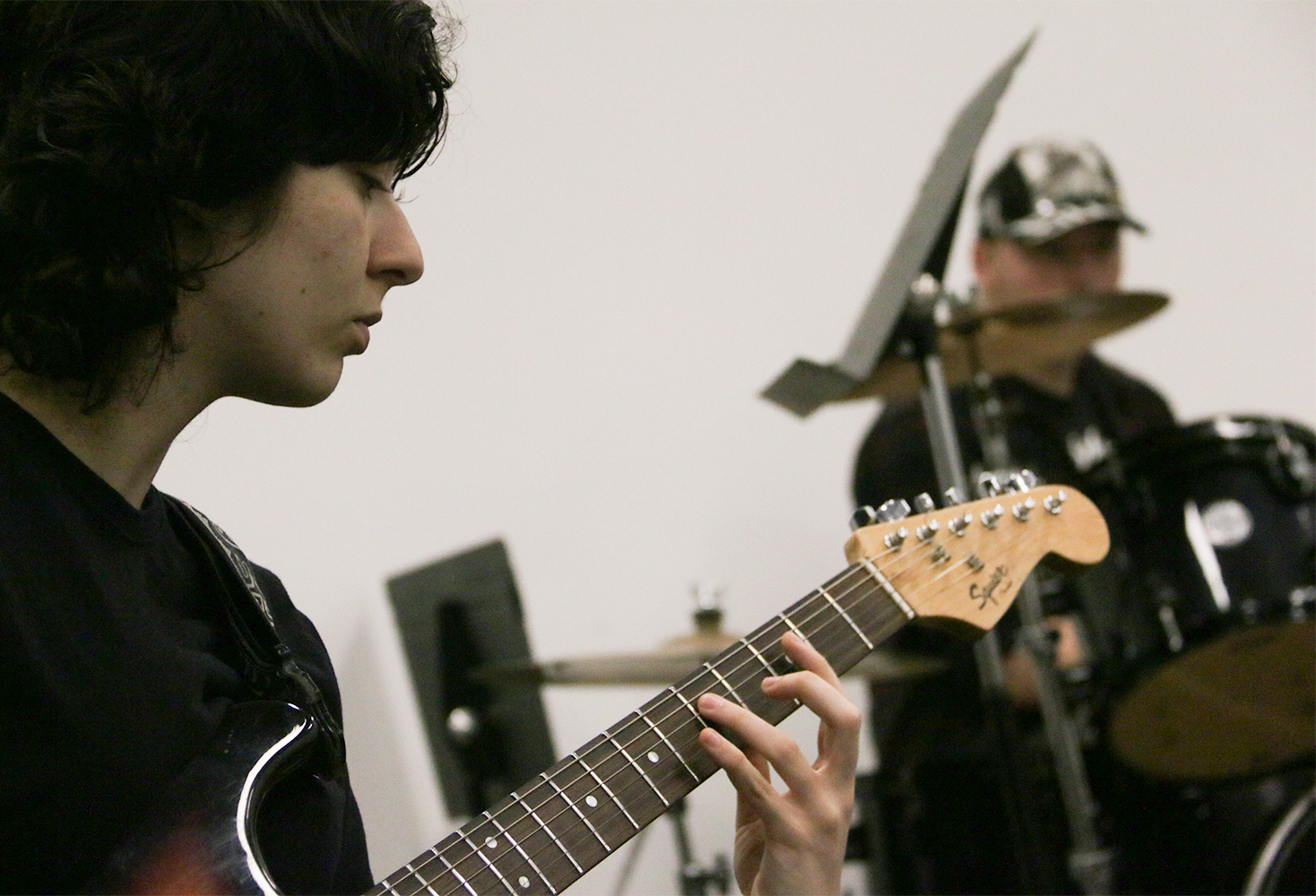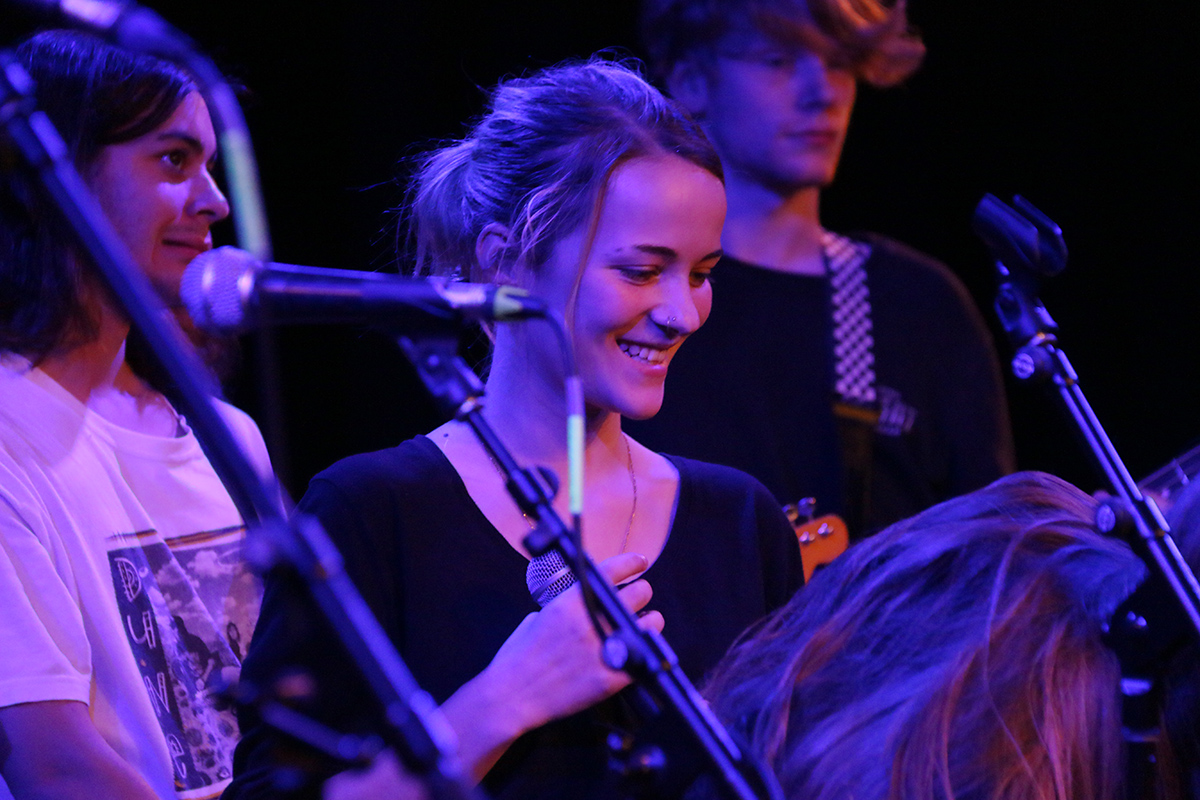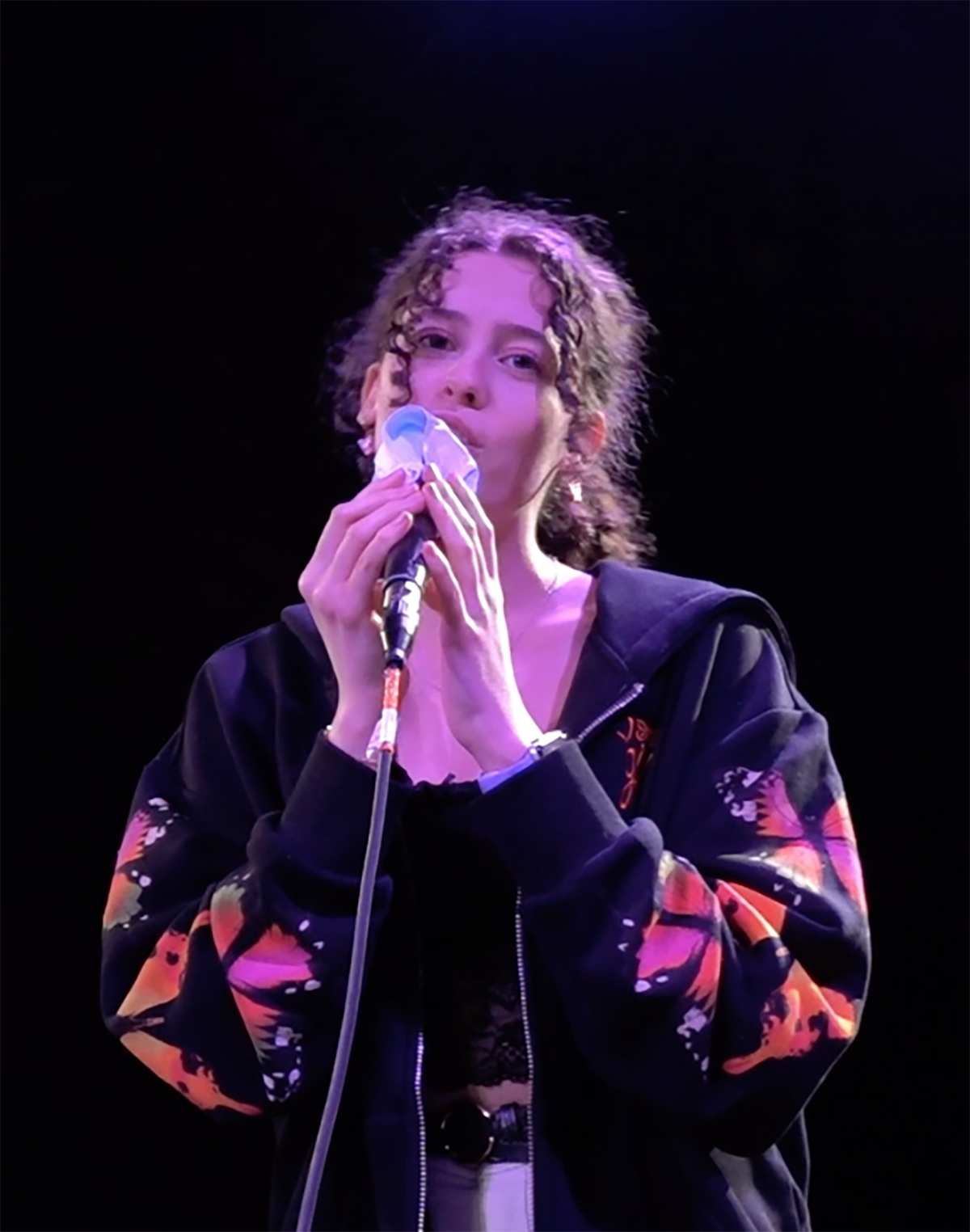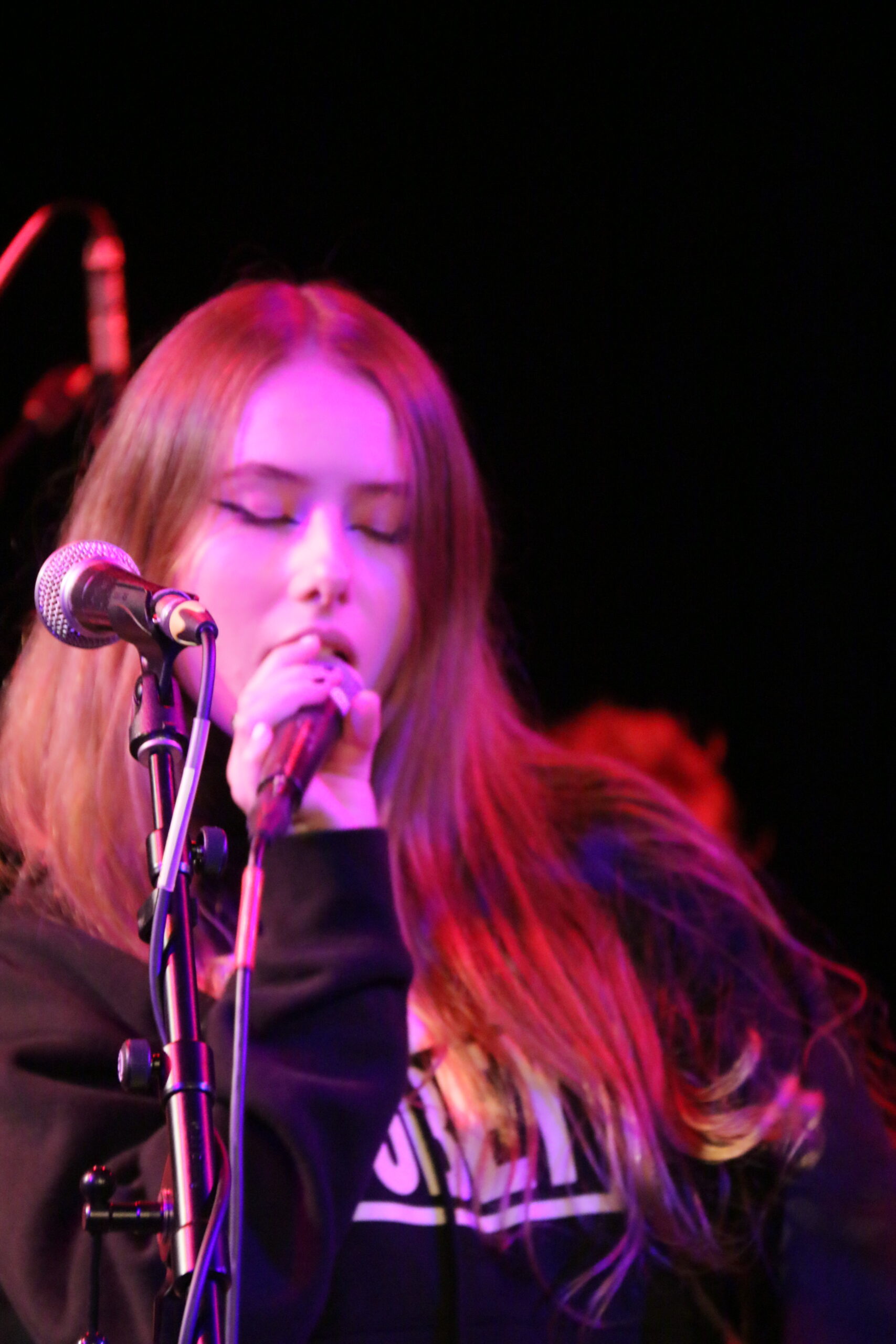The College consults with industry and government reference groups to ensure our curriculum remains consistent with emerging trends. Purpose-built facilities demonstrate sustainable practices, furnished with a fully equipped recording studio, digital audio workstations and multimedia labs.
TestimonialsPeter Myers (Head of Department, Music)
“The equipment we've got is industry standard. We've got a recording studio that is as good as any commercial recording studio that you would find.”
TestimonialsMonique Hirschfeld (Music Student)
“I love how music connects you to an audience and how it makes people feel.”
TestimonialsZac Lister (Sound Production Teacher)
“The most important part of having industry standard gear is when the real world, they know what it is. They see it they’re not daunted.”
TestimonialsMonique Hirschfeld (Music Student)
“They know that this is not just a thing you want to do, it's a passion.”
(
1 /
5)









